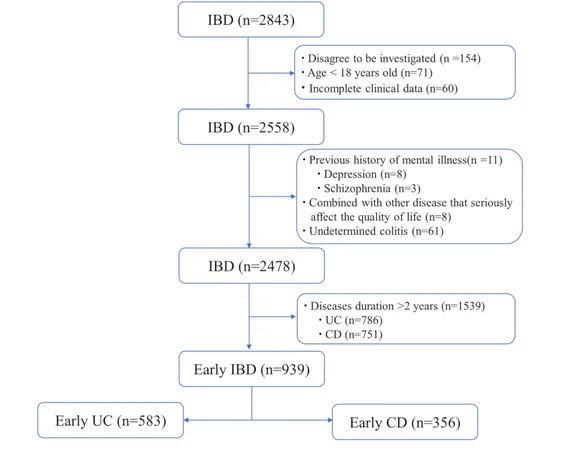
Understanding the Mental Health and Life Quality of Early IBD Patients: A Groundbreaking Study from China
2024-11-12
Author: Arjun
Inflammatory bowel disease (IBD) is a chronic condition that can significantly affect both physical health and psychological well-being. In a recent multicenter study conducted in China, researchers explored the psychological symptoms and quality of life (QoL) of early IBD patients—those diagnosed within the last two years. This study, which spanned from September 2021 to May 2022, involved a robust survey that drew insights from 939 patients across 42 gastroenterology centers.
Defining Early IBD Patients
While there is no universal definition for "early" IBD patients, this study adopted the widely recognized criterion of a diagnosis made within the past two years. This timeframe is crucial as early intervention can significantly impact the disease trajectory and the psychological well-being of patients.
Survey Details and Participant Demographics
The survey involved a comprehensive methodology, beginning with an observational phase where experts evaluated existing treatment practices in IBD centers. Following training sessions for healthcare providers, a cross-sectional survey was administered using a QR code-based electronic questionnaire. The participants included a diverse sample, predominantly young adults with an average age of 34 years. Among them, 583 were diagnosed with ulcerative colitis (UC), while 356 had Crohn's disease (CD).
Psychological Symptoms Revealed
The findings from the study indicated alarming rates of psychological symptoms among early IBD patients. Some key results included: - About 20.3% of participants experienced significant anxiety. - Approximately 21.7% reported symptoms of depression. - Sleep disturbances were noted in 57.3% of patients. - A staggering 41.9% rated their quality of life as poor. Notably, UC patients exhibited slightly higher anxiety and depression scores compared to CD patients, indicating that the psychological burden might differ based on disease type.
Factors Influencing Mental Health
The research further delved into various factors affecting psychological symptoms. For instance, factors such as female gender, initial diagnosis experience, low income, and the degree of disease activity emerged as independent predictors of anxiety and depression in early IBD patients. The connection between psychological distress and QoL was also evident, as patients reporting poorer QoL consistently demonstrated heightened levels of anxiety and depression.
Nomogram Model to Predict Quality of Life
In an innovative approach, researchers developed a nomogram to predict poor QoL based on identified risk factors like economic status and disease activity. This model, validated through rigorous statistical analysis, showcased good predictive capabilities, providing a crucial tool for healthcare professionals to identify patients at risk and implement timely interventions.
The Rising Importance of Mental Health in IBD
The study's revelations are particularly concerning amid statistics indicating a 47.45% increase in IBD prevalence over the last three decades. Given the incurable nature of IBD and its long-term implications on mental health, early identification of psychological disturbances is vital.
Conclusion
This comprehensive research underscores the urgent need to acknowledge and address the psychological symptoms that early IBD patients face in China. The construction and validation of a predictive nomogram may pave the way for more personalized healthcare interventions, ultimately enhancing the quality of life for patients battling this chronic condition. As IBD continues to rise globally, understanding its multifaceted impact will become ever more critical.
Could Early Intervention Be Key to Improving Life Quality in IBD Patients?
The answer might just be hidden in psychological support and targeted treatment strategies!


 Brasil (PT)
Brasil (PT)
 Canada (EN)
Canada (EN)
 Chile (ES)
Chile (ES)
 Česko (CS)
Česko (CS)
 대한민국 (KO)
대한민국 (KO)
 España (ES)
España (ES)
 France (FR)
France (FR)
 Hong Kong (EN)
Hong Kong (EN)
 Italia (IT)
Italia (IT)
 日本 (JA)
日本 (JA)
 Magyarország (HU)
Magyarország (HU)
 Norge (NO)
Norge (NO)
 Polska (PL)
Polska (PL)
 Schweiz (DE)
Schweiz (DE)
 Singapore (EN)
Singapore (EN)
 Sverige (SV)
Sverige (SV)
 Suomi (FI)
Suomi (FI)
 Türkiye (TR)
Türkiye (TR)
 الإمارات العربية المتحدة (AR)
الإمارات العربية المتحدة (AR)